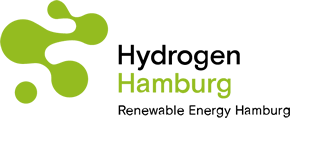Application examples in different economic fields
Key Industries
Heavy industries
The production and refining of metals is a particularly energy-intensive process. In addition, natural gas is often needed for certain processes, such as the reduction of iron. Replacing it with hydrogen is one of the biggest drivers for decarbonising the urban economy. Several metallurgical companies in Hamburg are currently working on pilot projects.
Maritime sector
The maritime sector has a dual role to play in transitioning the economy from fossil fuels to hydrogen. Firstly, propulsion systems will need to be converted to fuel cells and synthetic fuels made of hydrogen derivatives in the medium term; secondly, shipping is an important link in the logistics chain for the transport of hydrogen. For Hamburg as a traditional port location, both aspects are extremely important for the port's future viability.
Mobility and logistics
The use of hydrogen for mobility and logistics is particularly expedient for land-based heavy goods transport and in local public transport. Large vehicles such as HGVs and buses are less suited to electrification than passenger cars, which is why fuel cell technology plays a major role here, as it promises larger ranges and payloads. On the one hand, it is up to the manufacturers and retrofitters to provide suitable vehicles; on the other hand, the refuelling infrastructure will need to be expanded.
Aviation
Even if a great deal of development work still needs to be done before the first hydrogen-powered aircraft will be able to take off, decisive steps are already being taken to make aviation more environmentally friendly. This ranges from climate-friendly aircraft production in the Airbus factories to fuel cell-powered intralogistics and vehicle fleets at Hamburg Airport to PtL technologies to produce synthetic jet fuel from hydrogen as a climate-neutral aircraft fuel.


